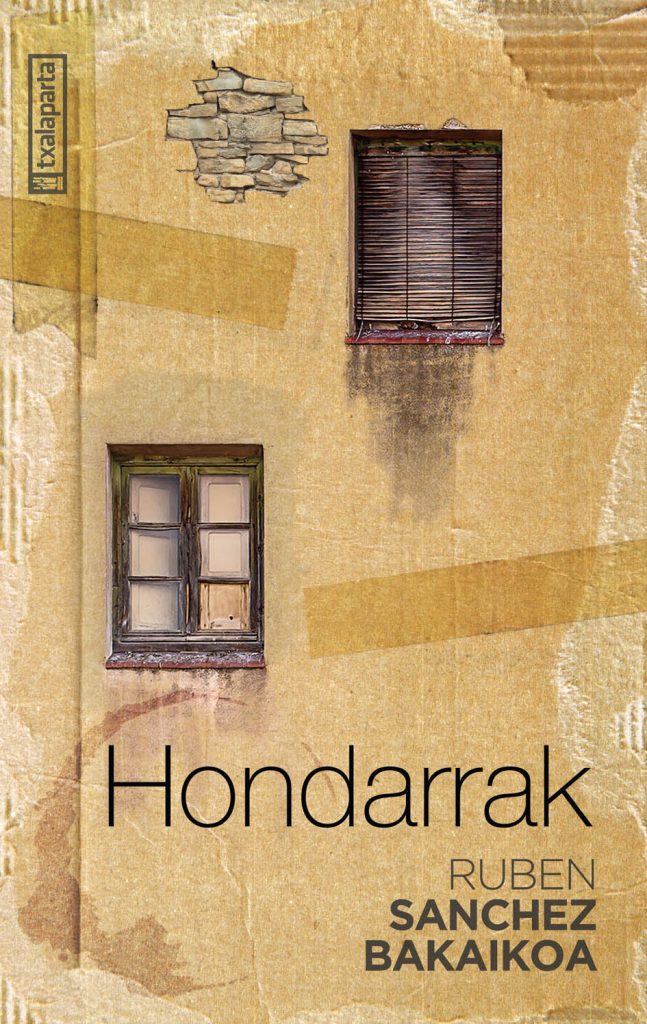Menu

ETAkide izateagatik atxilotzen dutenetik, espetxe batetik bestera daramate Tupa. Itzalean, familiaren istorioak biltzeari ekiten dio gatibu gazteak, eta horrela agertzen zaizkigu, beren ahotsean, Pilar eta Julia, hiru belaunaldiren kontaketa osatzeko. Kartzelako pasadizoak eta gorabeherak Uxue herriko egunerokoarekin nahastuko zaizkigu, 80ko eta 90eko hamarkadak Gerra Zibilaren hondarrekin, Nafarroako hegoaldea Arabako hiriburuarekin. Eta herri bat husten ikusiko dugu, pertsona bat kartzelan zahartzen, ametsak aldatzen eta behin hartutako erabakien ondorioekin bizitzen.
Ruben Sanchez Bakaikoaren lehen eleberri honek, espetxe literatura esan dakiokeen azpigenero hori elikatzeaz gainera, gatazkak eta gatazkek ezaugarritutako herri baten kontaketa bizia egiten du.
Desde que lo detienen por pertenencia a grupo armado, Tupa es trasladado de una prisión a otra durante décadas. En cautividad, el joven comienza a recopilar historias familiares; así nos llega la voz de tres generaciones de una misma familia, donde se entrelaza el día a día en prisión con la vida de un pueblo navarro en la posguerra. Seremos testigos de la despoblación del entorno rural, del desgaste que conlleva la vida carcelaria, de cómo cambian los sueños y cómo se vive con las complejas consecuencias de las decisiones propias. Esta novela refleja vívidamente los conflictos que han caracterizado a todo un pueblo.
Since he was arrested, accused of belonging to an armed group, and for decades, Tupa has been constantly transferred from prison to prison. During his incarceration, the young man assembles family stories. Thus, we hear the voices of three generations from the same family, intertwining daily life in prison with daily life at a village in Navarra, during post-civil war in Spain. We will see how rural areas became deserted, how prison wears anyone out, how dreams change and how to get by the intricate consequences of decision taking. This novel vividly enhances the conflicts that have defined our entire land.

Txalaparta is the name of a free, independent Basque publisher. We publish around 40 books per year, mainly in Basque and Spanish: Basque and world literature, political and historical non-fiction, social criticism, leftist classics, historical encyclopaedias. They are all contained within different collections: Gebara, for international fiction and non-fiction; Orreaga, for Spanish fiction and non-fiction; Amaiur, Basque fiction and non-fiction; Cuerpo y Mente, which includes non-fiction about health, nature, diet etc.; TXO!, the Basque arm of OQO, encompassing children’s literature in Basque; Clásicos, with special editions of classic texts; Literotura, the only collection of erotic literature in Basque; Rabel, which includes the biographies of musicians and artists and some of their works; Kortazar, novels by American authors of Basque origin; and Axuri Beltza, small-format children’s literature.



© Euskal Editoreen Elkartea